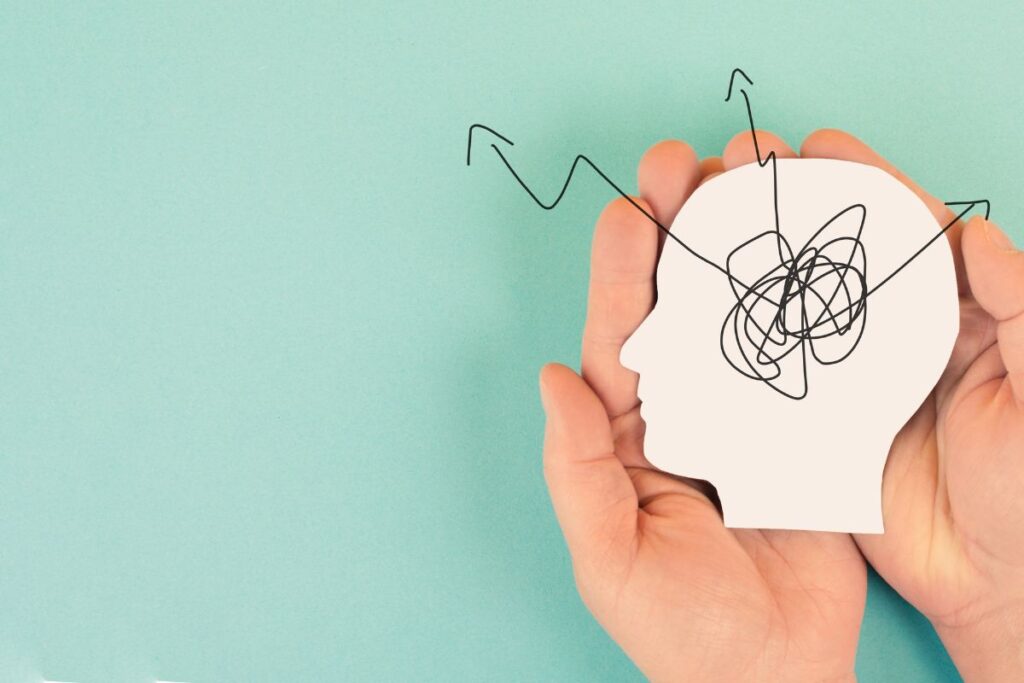Mental Health: Social media has become an undeniable force in our lives. It offers a constant stream of connection, information, and entertainment. But alongside these benefits lie potential pitfalls for our mental health. While social media can foster communities and support networks, it can also contribute to feelings of isolation, inadequacy, and anxiety. Understanding the impact of social media on mental health is crucial for navigating the digital landscape in a way that promotes our well-being.
How Social Media Impacts Mental Health
Social media’s influence on mental health is multifaceted. Here’s a closer look at some of the key areas of impact:
-
Social Comparison and FOMO (Fear of Missing Out): Social media feeds are often curated highlight reels, showcasing the best moments of people’s lives. Constant exposure to these unrealistic portrayals can lead to social comparison and feelings of inadequacy. The fear of missing out (FOMO) can further intensify this pressure, as individuals feel compelled to keep up with the perceived exciting lives of others. This relentless comparison can erode self-esteem and contribute to anxiety and depression.
-
Validation Seeking and the Quest for Likes: Social media platforms thrive on user engagement. Likes, comments, and shares can trigger the release of dopamine, a neurotransmitter associated with pleasure and reward. This can lead to a cycle of validation seeking, where individuals rely on external approval to feel good about themselves. The number of likes on a post can become a metric for self-worth, creating a dependence on external validation that can be detrimental to mental health.
-
Cyberbullying and Online Harassment: The anonymity of the online world can embolden negativity. Cyberbullying and online harassment are serious issues that can have lasting consequences. Derogatory comments, hurtful messages, and social exclusion online can lead to feelings of isolation, anxiety, and depression. It is important to remember that cyberbullying is not harmless fun, and it can have a devastating impact on mental health.
-
Unrealistic Beauty Standards and Body Image Issues: Social media is saturated with images of people who often represent unrealistic beauty standards. The constant bombardment of these images can lead to body image dissatisfaction, particularly among adolescents and young adults. The pressure to conform to unrealistic beauty ideals can contribute to low self-esteem, eating disorders, and social anxiety.
-
Sleep Disruption and Increased Screen Time: The blue light emitted from electronic devices can suppress melatonin production, a hormone that regulates sleep. Spending excessive time glued to social media screens can disrupt sleep patterns, leading to fatigue, irritability, and difficulty concentrating. Chronic sleep deprivation can exacerbate symptoms of anxiety and depression.
Strategies for Navigating Social Media and Protecting Mental Health
While social media can pose challenges to mental health, it doesn’t have to be all negative. Here are some practical strategies for navigating the digital landscape and protecting your well-being:
-
Cultivate a Critical Eye: Be mindful of the curated nature of social media content. Recognize that most people only share their best moments online. Don’t compare your behind-the-scenes reality to someone else’s highlight reel.
-
Curate Your Feed: Take control of your social media experience. Unfollow accounts that make you feel bad about yourself or trigger negative emotions. Instead, follow accounts that inspire you, motivate you, and promote body positivity.
-
Set Boundaries and Limits: Set clear boundaries around social media use. Schedule specific times to check your feeds and resist the urge to mindlessly scroll. Consider implementing social media detox periods to disconnect and recharge.
-
Focus on Real-Life Connections: Social media can’t replace the power of face-to-face interaction. Prioritize spending time with loved ones, engage in hobbies you enjoy, and nurture your real-life relationships.
-
Practice Self-Compassion: Be kind to yourself. Social media can be a breeding ground for negativity. Actively counter negative self-talk and cultivate self-compassion. Remember your worth is not defined by the number of likes you get.
-
Seek Professional Help: If you find that social media use is negatively impacting your mental health, don’t hesitate to seek professional help. A therapist can teach you coping mechanisms for dealing with social media pressures and help you develop a healthier relationship with technology.
Remember, You Are Not Alone
Social media can be a double-edged sword for mental health. While it offers connection and entertainment, it can also contribute to feelings of inadequacy and anxiety. By being mindful of these impacts and implementing healthy habits, we can navigate the digital landscape in a way that promotes our well-being. If you are struggling with social media use or its impact on your mental health, remember, you are not alone. There are many resources available to help you, and reaching out for professional support is

